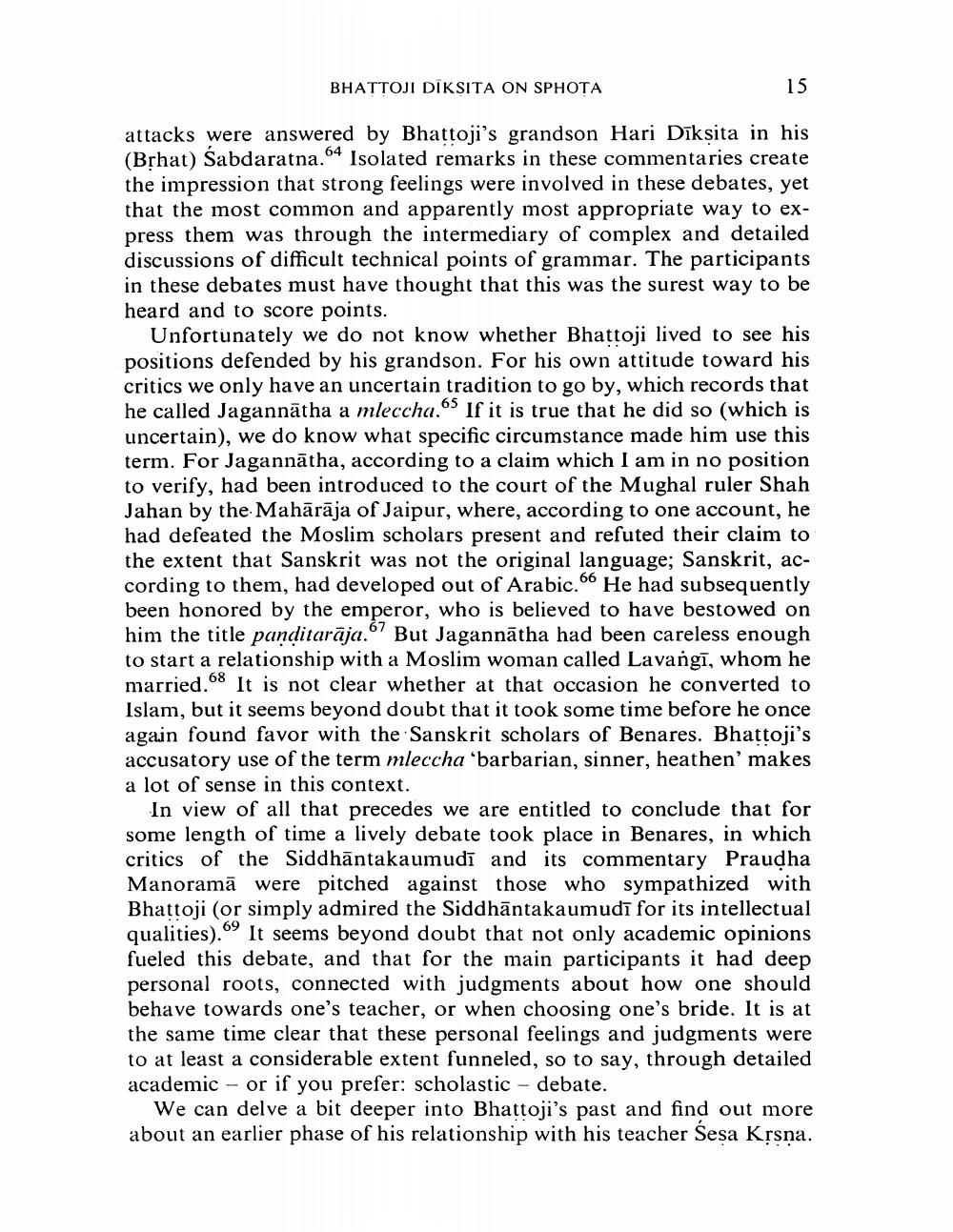________________
BHATTOJI DIKSITA ON SPHOTA
attacks were answered by Bhattoji's grandson Hari Diksita in his (Bṛhat) Śabdaratna.64 Isolated remarks in these commentaries create the impression that strong feelings were involved in these debates, yet that the most common and apparently most appropriate way to express them was through the intermediary of complex and detailed discussions of difficult technical points of grammar. The participants in these debates must have thought that this was the surest way to be heard and to score points.
Unfortunately we do not know whether Bhattoji lived to see his positions defended by his grandson. For his own attitude toward his critics we only have an uncertain tradition to go by, which records that he called Jagannatha a mleccha.65 If it is true that he did so (which is uncertain), we do know what specific circumstance made him use this term. For Jagannatha, according to a claim which I am in no position to verify, had been introduced to the court of the Mughal ruler Shah Jahan by the Mahārāja of Jaipur, where, according to one account, he had defeated the Moslim scholars present and refuted their claim to the extent that Sanskrit was not the original language; Sanskrit, according to them, had developed out of Arabic.66 He had subsequently been honored by the emperor, who is believed to have bestowed on him the title panditarāja. But Jagannatha had been careless enough to start a relationship with a Moslim woman called Lavangi, whom he married. It is not clear whether at that occasion he converted to Islam, but it seems beyond doubt that it took some time before he once again found favor with the Sanskrit scholars of Benares. Bhattoji's accusatory use of the term mleccha 'barbarian, sinner, heathen' makes a lot of sense in this context.
67
15
In view of all that precedes we are entitled to conclude that for some length of time a lively debate took place in Benares, in which critics of the Siddhantakaumudi and its commentary Praudha Manorama were pitched against those who sympathized with Bhattoji (or simply admired the Siddhantakaumudi for its intellectual qualities). It seems beyond doubt that not only academic opinions fueled this debate, and that for the main participants it had deep personal roots, connected with judgments about how one should behave towards one's teacher, or when choosing one's bride. It is at the same time clear that these personal feelings and judgments were to at least a considerable extent funneled, so to say, through detailed academic or if you prefer: scholastic debate.
We can delve a bit deeper into Bhattoji's past and find out more about an earlier phase of his relationship with his teacher Sesa Krsna.




